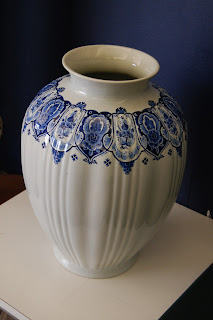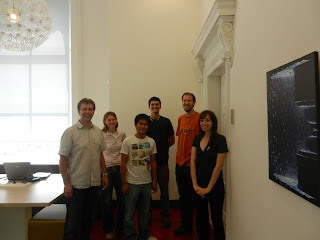Upon arriving I expected more industry, but I was suprised by the amount of agriculture fit into the densely populated country. I was able to travel to the northern region (Friesland) and see the zeedijk, as well as track down the origins of my family name and associated ancestors.
 |
| 1811 in response to Napoleon - my family name is chosen... and misspelled? |
+ Exploring massive flood management engineering marvels
+ Learning to love coffee
+ Spending time in a floating building in Rotterdam harbor
+ Discovering the street stroopwafel
+ Re-learning to ride a fiets (bike)
+ Re-learning what it's like to fall of a fiets (x2)
+ Traveling to neighboring countries (Germany, Belgium, Austria)
My time spent in the Netherlands has allowed me to expand my view on water management. Dijks and building-on-water seemed more like concepts or examples that could only work abroad until I was able to view and experience them for myself. I have found that floating buildings or communities are feasible, as are projects that protect populations from massive amounts of water. The flood prevention plan for the Netherlands is extensive. However, the preparedness realm is still being improved. Working on that aspect has given me the chance to investigate how flood management requires a synergy on multiple levels.
I would like to thank the National Science Foundation IRES program hosted by UNESCO-IHE and coordinated with the University of South Florida, without which none of the above would have been possible. I would also like to thank everyone at Dura Vermeer. It has truly been a memorable and life-changing experience, and I appreciate the opportunity to be a part of the program. Thank you to everyone who has been involved!
I look forward to improving upon my biking skills when I return home...
-Caryssa
















